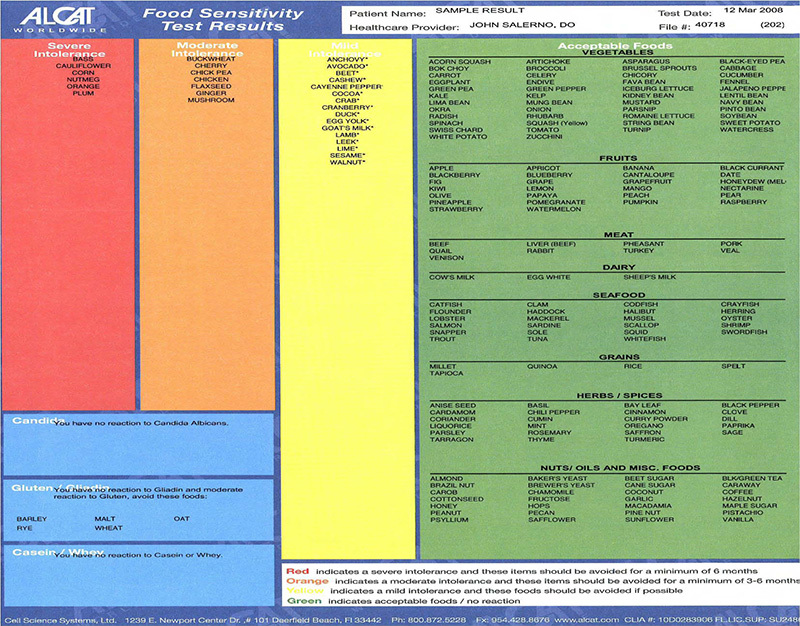Is a Gluten Allergy Just a Fad?
/Having a gluten allergy or sensitivity has become trendy.
So much so that is has become fodder for comedians.
via glutenfreesociety.org
Firstly, let me point out that clearly there are a lot of people who are utilizing "avoiding gluten" as a way to try to lose weight without having any specific gluten-related diagnosis. (Or some other benefit, but losing weight is certainly the most common reason for someone to just randomly try going gluten-free.) I don't have a particular problem with this. Experimenting with avoiding gluten is not harmful, if a bit inconvenient, and may actually be helpful. It can be helpful in one of two ways for those who have jumped on the gluten-free bandwagon:
- It causes said bandwagoner to dial back their refined carbohydrate consumption since most processed grains contain gluten. Removing processed junk is always a good thing and can definitely result in weight loss if those foods are not simply replaced with gluten-free versions of the same vein.
- Said bandwagoner turns out to actually have an underlying sensitivity to gluten that has caused symptoms for a long time (e.g. gas, bloating, skin irritations, inflammation etc.) but because the symptoms were a constant occurrence, he/she never made the connection between food and the symptoms. By removing gluten, these symptoms that he/she had become accustomed to disappear.
Those two reasons are why I don't have a problem with people experimenting with a gluten-free diet on their own. They may actually get some benefit. If they don't see any improvements after a month, then gluten is probably not an issue and not worth avoiding. Of course, there are also some pitfalls with eating gluten-free:
- Simply substituting gluten-free processed crap for gluten-containing processed crap. This does not benefit your health in any way. In fact, some gluten free products have higher glycemic indexes than their gluten-containing counterparts.
- Thinking that anything that is gluten-free is magically healthy. NOPE. Sorry, but a gluten-free cupcake is still a cupcake. This is similar to #1, but extra dangerous because it can go beyond substituting to causing over-eating. Similar to the SnackWells problem of the 80's and 90's where people ate boxes of fat-free cookies, slapping a label on desserts does not turn them into vegetables. (Vegetables ARE gluten-free, however. Eat them.)
Some people like to argue that going gluten-free can cause nutrient deficiencies. This is NOT TRUE. Gluten is not a requirement to health. What is true, however, is that grains are often people's main source of B-vitamins and fiber. This doesn't have to be the case, but since Americans (and other western nations) eat A LOT of grains, they tend to be the most prolific source. Be sure to eat a varied whole foods diet focused on vegetables and you will be fine.
What about people who DO need to eat gluten-free?
Okay, here's the thing. I have noticed recently that some people who truly are allergic to gluten (e.g. Celiac disease, Rheumatoid Arthritis/other autoimmune disorders) or have established sensitivities to gluten are now being accused of having a fake gluten problem. This is not fair. First of all, many people have an allergy to gluten in the true ALLERGY sense: meaning an IgE reaction. That is the definition of an allergy. Other people have different immunoglobulin reactions that are not IgE and those fall under the category of SENSITIVITIES because only IgE reactions are labeled as allergies.
Both of these situations are real and neither of these categories of people should be consuming gluten.
Let me reiterate.
There is such a thing as a gluten-allergy AND there is such a thing as a gluten-sensitivity. Neither are fake or a fad. People can lie about it, sure, but the diagnosis does exist.
The good news is that since gluten-free became a mainstream idea, people who should absolutely not eat gluten have many more options available to them, better labeling, and restaurants now understand what gluten is. That is great.
The fact that people roll their eyes at people avoiding gluten is not great.
Here is my opinion about what you should do if someone says they are gluten-free.
Say OKAY with a smile.
Then you have a couple of options.
- If you are planning a dinner party, inquire "Is there any way that I can accommodate you?" Most people who are gluten-free take it upon themselves to make sure they are taken care of without being a burden. Most likely they will offer to bring a gluten-free dish or have a snack before coming so that they can eat less at the party without going hungry.
- If you are at a restaurant, inquire "Will you be able to find options here to accommodate you?" Honestly, most restaurants these days are prepared for gluten-free customers. Most likely, your dinning partner will be fine. You can always ask the waiter.
- If it just randomly came up in conversation, either just say okay with a smile or ask nicely about what caused the shift, how's it going or if he/she has noticed any improvements.
Easy-peasy.
No need to be all judgmental, roll your eyes and immediately start fabricating reasons in your mind about all of the supposed "fake" reasons this person has made the choice to go gluten-free.
Yes, I realize that some people are just trying to be trendy or trying a new diet for kicks.
Oh well.
Seriously.
Unless you just spent all day in the kitchen making this person a beautiful gluten-containing meal only for he/she to stride in declaring that from this day on he/she is avoiding gluten for no seemingly particular reason, then it doesn't really matter what this person will or will not eat. (And if someone does do that to you, and if that person doesn't immediately spy your hard work and declare that this new diet begins TOMORROW, then that person is an asshole. Throw your beautiful pie in his/her face.)
I realize that if the impetus is on you to cook for a gluten-free individual and you have no idea how to do this, it can be scary and frustrating. Gluten-free cooking, I promise, isn't that hard. But, that is a whole other topic. This post is concerned mainly with those who are not all that affected by their friend's, colleague's, random acquaintance's diet choices.
When it doesn't really affect us all that much how someone else eats, don't be rude.
The last and final caveat
This post is really about good people who either have a true gluten issue or want to experiment with gluten-free eating. I'm not talking about people who aggressively inundate you with details of their eating habits when you never asked. You might want to stop hanging out with those people. They sound insufferable.
And even more importantly, this post was not referring to people who seem to have a truly unhealthy relationship with their food. Othorexia nervosa is an eating disorder associated with extreme obsessiveness with eating healthy. If the latest manifestation of someone's fixation on healthy eating has come to include gluten-free eating, the previous rules do not apply. Instead, you really ought to entertain the possibility that this person might need some help. Be kind. Always be kind and point this person in the direction of someone with the skills to intervene.

















